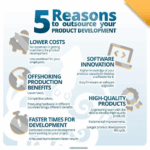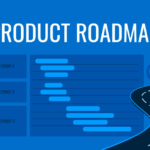Sole sourcing is a procurement solution designed to streamline the entire procurement process while availing itself of certain accompanying risks and challenges.
In this blog, we are going to discuss what sole source really means, its advantages and disadvantages, and possible avenues of its application. All of these will be a guide for procurement professionals and business owners in making appropriate sourcing choices.
Definition of Sole Source:
Would you like to get into a procurement strategy when the seller chooses a single supplier without going through a competitive bid? The sole source is your scheme. A sole source contract occurs when a buyer awards a contract to one source and does not invite competition. This is normally done when the supplier is the only one capable of providing an acceptable product or service.
According to a 2023 study by the National Institute of Government Procurement (NIGP), about 40% of public sector contracts involve sole-source procurement due to proprietary technology, emergency needs, or a lack of viable alternatives.
This approach is commonly used in industries like defense, aerospace, pharmaceuticals, and specialized manufacturing, where exclusive patents, regulatory requirements, or highly customized products make competition impractical.
Imagine you’re NASA, and you need a specific navigation system for a spacecraft. If only one company in the world can build it, you have no choice but to award a sole-source contract.
Another example is in healthcare—certain medical devices, such as advanced MRI machines, might have only one manufacturer globally, making sole sourcing necessary.
What is a Sole Source?
At its core, sole sourcing means choosing a vendor because it’s the only option. Unlike single sourcing, where multiple suppliers exist but the buyer picks just one, sole sourcing means there’s genuinely no competition.
For example, the U.S. Government Accountability Office reported that in 2022, over 75% of Pentagon contracts were awarded through sole sourcing due to security concerns and specialized technology.
Some businesses sole-source contracts for reliability. A hospital that has used a specific brand of medical imaging equipment for years may prefer to stick with the same supplier to avoid compatibility issues. Switching to another brand could mean expensive retraining and software adjustments, so staying with the same vendor makes financial sense.
What Does Sole Source Mean?
The meaning of sole source varies across industries, but in simple terms, it means skipping the competitive bidding process and going directly to a pre-selected vendor. While this method can be efficient, it’s often scrutinized to prevent favoritism and inflated costs.
Common reasons for using sole sourcing include:
- Proprietary technology – Some companies hold exclusive patents, meaning no other vendor can legally provide the same product. A perfect example is the pharmaceutical industry, where drug patents give companies exclusive rights for a certain period.
- Highly customized products – If a manufacturer needs a custom-built industrial machine, it may only be available from one supplier.
- Long-standing vendor relationships – Companies that rely on trusted suppliers may avoid the hassle of switching vendors, especially if the change could cause delays or additional costs.
Sole Source Meaning in Business and Government Procurement
Sole Sourcing in Business
In the corporate world, companies use sole sourcing when a supplier provides a unique, high-quality, or highly specialized product or service.
Take luxury car manufacturers as an example—they may rely on a single supplier for custom leather interiors because no other vendor can meet their strict quality standards. Aerospace companies, on the other hand, often work with exclusive suppliers that meet specific NASA or FAA safety regulations.
Sole Sourcing in Government Contracts
Governments frequently use sole sourcing for critical projects. A Transparency International report found that 30% of government spending in developing countries goes through non-competitive contracts, sparking concerns about transparency.
To prevent corruption, government agencies must provide strong justifications for sole-source contracts, such as lack of competition, urgent needs, or national security concerns. Without these justifications, the process could raise legal and ethical questions.
Advantages of Sole Sourcing
When used wisely, sole sourcing offers several benefits:
- Faster procurement – No bidding process means organizations can move quickly. This is crucial for emergencies, like natural disasters or urgent military needs.
- Access to specialized expertise – Some suppliers have decades of experience in niche industries, making them the only logical choice.
- Cost efficiency in niche markets – If only one supplier meets strict quality and regulatory requirements, competitive sourcing may not drive costs down. In fact, working with a sole-source supplier can reduce research and development expenses.
- Consistent quality – Long-term supplier relationships ensure stable quality and reliable service. Businesses in healthcare, aviation, and manufacturing often rely on sole sourcing to maintain product consistency.
Disadvantages and Risks of Sole Sourcing
Despite its benefits, sole sourcing comes with significant risks:
- Higher costs – A 2022 Federal Trade Commission report found that sole-source government contracts cost taxpayers 20-30% more than competitive bids. Without price competition, vendors may charge higher rates.
- Over-reliance on a single supplier – If the supplier has production issues, faces a financial crisis, or increases prices, buyers have no fallback option.
- Legal and compliance risks – Government agencies and companies using sole sourcing must prove there were no viable alternatives. Failure to do so could result in legal action or penalties.
- Innovation stagnation – Relying on a single supplier might prevent businesses from exploring new technologies or better alternatives.
When to Use Sole Sourcing?
Sole sourcing isn’t for every situation, but it makes sense when:
- The supplier holds a patent – Only one company can legally provide the product.
- A product is highly specialized – Some industries require custom-built machinery or software that no other vendor can produce.
- Emergencies – Governments often bypass bidding when they need immediate action, such as securing medical supplies during a pandemic.
- National security concerns – Some contracts must go to pre-approved suppliers for safety and security reasons.
Finding the Right Sourcing Partner with BrandNewMD
The right supplier can indeed be a game changer for companies. Brand New MD has everything that you need when it comes to intelligent sourcing strategies for cost savings and quality.
Brand New MD is well-versed in global procurement and has competitive pricing, risk management, and access to the best suppliers to add to the business value of a company without the disadvantages of sole sourcing.
Get expert sourcing solutions with Brand New MD.
Final Thoughts
Sole sourcing can be a double-edged sword—it offers speed and expertise but can lead to higher costs and supplier dependency. The key is knowing when to use it and ensuring your procurement decisions are backed by solid reasons.
Need help with procurement? Let Brand New MD help you navigate the best sourcing strategies.









